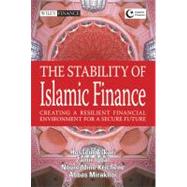
DR. ZAMIR IQBAL works as Lead Investment Officer in the Treasury of the World Bank in Washington, D.C. He earned his Ph.D. in International Finance from the George Washington University, where he also serves as adjunct faculty of International Finance. He has extensive experience with capital markets, structured products, risk management, financial sector development, and financial modeling. His research interests include Islamic finance, financial engineering, structured finance and risk management. He is co-author of several books on Islamic banking and finance.
DR. NOUREDDINE KRICHENE received his Ph.D. in economics, University of California, Los Angeles, 1980; joined the International Monetary Fund (IMF) in 1986; and held the position of advisor at the Islamic Development
Bank.
DR. ABBAS MIRAKHOR received his Ph.D. in Economics from Kansas State University in 1969. After teaching at various universities in the USA and in Iran he joined the staff of the Research Department of the IMF in 1984. He became an Executive Director of the IMF from 1990 until his retirement in 2008. He is the author of a number of articles and books on Islamic economics and finance. He is now the first holder of the INCEIF Chair in Islamic Finance.
| Foreword | p. ix |
| Acknowledgments | p. xiii |
| Glossary of Arabic Terms | p. xv |
| Introduction | p. 1 |
| The Nature of Capital and the Rate of return | p. 11 |
| The Origins of Financial Panics and Recessions | p. 23 |
| Monetary Policy and Financial Crises | p. 37 |
| The Internationalization of Financial crises | p. 45 |
| The Role of the Credit Multiplier in Financial Crises | p. 61 |
| The Inherent Stability of Islamic Finance | p. 75 |
| A Theoretical Model of the Inherent Stability of Islamic Finance | p. 83 |
| Asset Pricing and Risk in Islamic Finance | p. 93 |
| Islamic Financial Intermediation and Markets | p. 113 |
| Risk Profile of Islamic Financial Intermediaries | p. 131 |
| Financial Engineering, Derivatives and Financial Stability | p. 141 |
| Corporate Governance and Financial Crises | p. 163 |
| The Performance of Islamic Financial Intermediaries and Products | p. 183 |
| Conclusion | p. 209 |
| Bibliography | p. 217 |
| Index | p. 225 |
| Table of Contents provided by Ingram. All Rights Reserved. |
The New copy of this book will include any supplemental materials advertised. Please check the title of the book to determine if it should include any access cards, study guides, lab manuals, CDs, etc.
The Used, Rental and eBook copies of this book are not guaranteed to include any supplemental materials. Typically, only the book itself is included. This is true even if the title states it includes any access cards, study guides, lab manuals, CDs, etc.